Karen Russell appeared on The Bat Segundo Show #379. She is most recently the author of Swamplandia!
Listen: Play in new window | Download
Condition of Mr. Segundo: Wrestling alligators that the mean men left in his motel room.
Author: Karen Russell
Subjects Discussed: How “Ava Wrestles the Alligator” transformed into Swamplandia!, origin stories of characters, expanding and embroidering, the tradition of underworld stories, Dante’s percolating possibilities, heroic kids and their totem animals, the River Styx, the Seven Remaining Houses in Stiltsville, bookmobiles as boats, Kiwi as autodidact versus Ava as experiential learner, siblings as id, ego, and the superego, torturing characters, the risks of diverging from the established text, how Russell arranges her ideas, dealing with the constant froth of ideas, the way that time and space relates to the body, writerly tics, the dangers of the word “limn,” the many alligators named Seth, characters who share names close to the writers Louis Auchincloss and Emily Barton, the health benefits associated with not looking back, sentences ending with exclamation marks, child neglect and the places where protective services can’t reach, the early introductions to Sesame Street, grief and denial, “printing the legend,” the amusement park competition between Swamplandia! and World of Darkness, Adventureland, the scarcity of quirky plots, optimistic delusions and the dangers of uncritical faith, belief in the dead as a fantasy, managing opposing fantastical virtues while finding parallels between Ava and Kiwi, the naivete of employing Max Weber’s values in the contemporary world, egotism and genius, including blanks within sentences, knowing the “music” of your own home phone number, facing the blank page, working with Jordan Pavlin, pop culture in Pavlin-edited novels, and fighting for expletives.
EXCERPT FROM SHOW:
Russell: The sprawl. This mimetic mangrove sprawl! I really got carried away with that place. I loved that setting and could see it so clearly. I wanted to just expand and embroider in a way. My agent and editor suggested that I do some serious paring down to what ends up being the dramatic action with Ava and Ossie. And then that just did not seem the plateau to keep those sisters on. I ended up feeling very frightened for Ossie and Ava, and disturbed about both sisters. And I think at a certain point I decided it was going to be an underworld story. I thought it was going to be this underworld Odyssey. There’s a nice tradition to work in there. (laughs)
Correspondent: Certainly.
Russell: That’s not copyrighted by Persephone.
Correspondent: No lawyers involved.
Russell: (laughs) Yeah, right. Don’t tell the Greeks.
Correspondent: Well, on the other hand, by explicitly referencing the River Styx — as you do about 150, maybe 200 pages into the book — I said to myself as I was reading this, “Oh, why did she have to go ahead and do that?” Because it’s nice to have the reader infer, “Oh!”
Russell: To trust.
Correspondent: “A River Styx-like metaphor.” I’m wondering if, in relying upon a myth like that, there is a danger in being too explicit. On the other hand, a reader can infer almost a Huck Finn-style situation as well.
Russell: Right.
Correspondent: What of this conundrum?
Russell: I really didn’t want it to be a one-to-one correspondence with any one of those stories. Although I’m sure they’re just in our bloodstream. Huck Finn and, as you say, the Odyssey. Dante. I think all of that was definitely percolating. But I think it’s dangerous to say, “Right. This is going to be Hamlet. But in the voice of a parrot!” Any way it reads just as that very direct correspondence.
Correspondent: Yeah. But at some point the decision was made to reference the River Styx.
Russell: Yeah. Well, my thinking there was that Ava, this child, is so glutted on those exact stories. Both the Yearling kinds of tales about heroic kids and their totem animals or whatever, and also the older myths. These older fairy tales. So the River Styx would be something from The Spiritualist Telegraph, which is a book that her sister has found on this wrecked Library Boat. That the kids are autodidacts. They are home-schooled on this island and they go to this wrecked Library Boat to get this magpie view of the reality outside their island. So they do have these piecemeal references coming in. And so much of her vision of the world is by analogy. It’s through the lens of these fairy tales and myths that he’s reading. I didn’t want people — but I do think it’s a danger. I wouldn’t want anyone to think that I’m doing in the octave of the swamp.
Correspondent: Sure.
Russell: Hades.
Correspondent: Well, there is definitely a Stilsville. There’s seven remaining homes. I’m wondering if there was actually a Library Boat system similar to the Bookmobiles. I didn’t get a chance to actually delve into this. I was trying to look around. Because that really captured my imagination.
Russell: No! Wouldn’t that be great?
Correspondent: It would be fantastic!
Russell: What a great idea!
Correspondent: It would make complete sense in an archipelago.
Russell: I’m saying. Get some government funding. I think it would be so wonderful. And I ended up excising a lot of material about in the Library Boat.
Correspondent: Really?
Russell: That didn’t belong. But I thought just because I’m a nerdy bookworm, my god, that would have been my paradise. If there was a wrecked ship full of books. No librarians to nose around what you were reading. You could just take and go. And I love the idea that people would come and leave books. Which, you know, is the system that exists. But there would just be a book with a constantly evolving library.
Correspondent: Add Borges on top of that. Then you’ve got a really interesting idea. (laughs)
Russell: Oh yeah. Get Borges to captain that boat. Seriously.
Correspondent: Well, we got in a bit of a flurry here from the original trajectory. But Kiwi. I’m curious how Kiwi came to life in this. Because he starts off being a side character. And then he becomes, well, this is the other side of the story. And as we pointed out earlier, he’s not in the original story [“Ava Wrestles an Alligator”].
Russell: Right.
Correspondent: Why Kiwi above anybody else? Or rather above Ossie, who just disappears entirely? Because it is interesting that Kiwi is more of an autodidact where Ava is more of an experiential learner.
Russell: That’s beautiful.
Correspondent: And I’m curious about how this came into being.
Russell: Oh, I’m so glad that she reads that way to you. I was thinking the two sisters — you have Ossie, who is the book’s unconscious. I mean, she is totally merged with her idea of herself. This clairvoyant psychic experience. She goes way off the deep end into the occult. And then Ava, I think she’s on a plateau where she hasn’t really committed to any one way of seeing. She’s seduced by this world of the ghosts. But I wanted her to be one more voice, one more force. I almost wanted to think of these three siblings as the superego, the ego, the unconscious almost. Because Kiwi is this hyperarticulate. Self-identifies as a genius. Knows lots of big words, but mispronounces them.
Correspondent: Now, now. Schematic though.
Russell: Thinks meningitis is a compliment. Right. So he has this idea of himself as a really literate, really astute reader. An adult reader of the world. So he is, in many cases, a voice of reason. And I think Ava toggles between these two views. She’s got her brother, her older brother, who’s more rooted in reality. Informed by the mainland. Albeit, also at the same time, stunted and naive. Because he’s grown up on this island forty miles away from the mainland. And then she has this sister, who is this frightening lost character. Sort of deranged character. I don’t know if that answers your question. But I wanted Kiwi because the book really needs a character to work in a more comic register.
Correspondent: To torture. As you did.
Russell: Well, I do in fact torture him?
Correspondent: Yeah.
Russell: Well, I don’t think that I torture him. I think that I just put him in a situation among mainland teenagers and then watch what unfolds.
The Bat Segundo Show #379: Karen Russell (Download MP3)

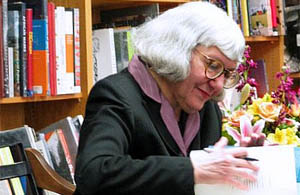
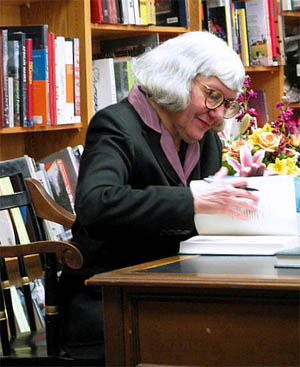
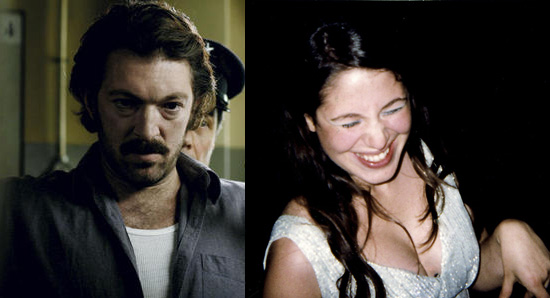
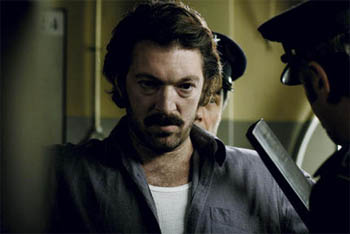 Correspodnent: Does movement offer a more creative place to establish a character? More so than the backstory, research, or anything?
Correspodnent: Does movement offer a more creative place to establish a character? More so than the backstory, research, or anything? Correspondent: You note of [your future husband] Ben that, as you watched him calmly rub soap into his hands by the communal sink, you realized that you had known all along that you would see him again. I’m wondering what it is about hand hygiene that serves as your personal madeleine.
Correspondent: You note of [your future husband] Ben that, as you watched him calmly rub soap into his hands by the communal sink, you realized that you had known all along that you would see him again. I’m wondering what it is about hand hygiene that serves as your personal madeleine.
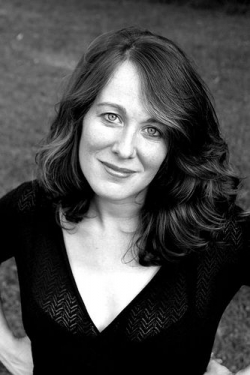 Correspondent: Henry opines that all meals should be hand-holdable and that forks and spoons should be against the law. You, again as the narrator — and this is interesting. You as the narrator.
Correspondent: Henry opines that all meals should be hand-holdable and that forks and spoons should be against the law. You, again as the narrator — and this is interesting. You as the narrator.
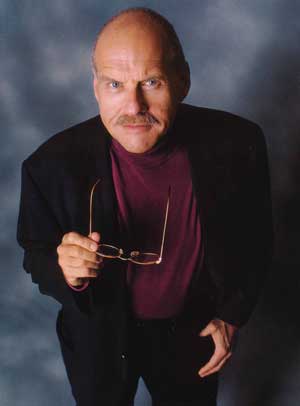 Correspondent: You mentioned that you had attempted memoir before.
Correspondent: You mentioned that you had attempted memoir before.